










BY KIT GRODE West Central Tribune
NEW LONDON — It took just a little over 70 years, but Ramona (Otterness) Latterell is back in New London and feeling just fine. She and her husband, LaVerne, are some of the newest residents at GlenOaks Senior Campus, just across the road from her childhood home.
Ramona, a 1953 graduate of New London High School, married LaVerne 70 years ago to the day, on April 16, 1955, at Trinity Lutheran Church in New London, just about two years after LaVerne escorted Ramona home from the Spicer dance hall and roller rink in 1953.
"I remember the first time I saw her at the county fair, walking behind me, coming out of the grandstand," LaVerne said. "She was with — I don't remember if it was two or three — a 'girl gang.' I just remember her face."
LaVerne didn't recall exactly how much time passed between that first glimpse of the woman who would later become his wife, but it wasn't too long before he met Ramona again, this time at the roller rink/ dance hall near Saulsbury Beach.
"Spicer had a good roller-skating rink, and at that time people danced in their rollerskates," LaVerne recalled.


Contributed / Lori Martin
Ramona's written account of that night differed slightly, in that she left out the roller-skating and instead wrote about the dancing portion of the evening, but LaVerne held firm that they had gone rollerskating that first meeting.
"She stood out, and I asked her to skate with me at the skating rink. Girls would go to these places; they would get a ride there, and hope to get a ride home with a boy, y'know," LaVerne said.
Kit Grode / West Central Tribune
LaVerne and Ramona Latterell, formerly of Kandiyohi, moved to GlenOaks Senior Living Campus in January 2025. They will celebrate their 70th wedding anniversary on Wednesday, April 16, 2025.














The cars lined up outside the dance hall after filling up the parking lots, and dances were some of the most popular date night activities.
Ramona and LaVerne attended their fair share of school sporting activities while dating. Ramona was just a few months shy of graduating from high school, and

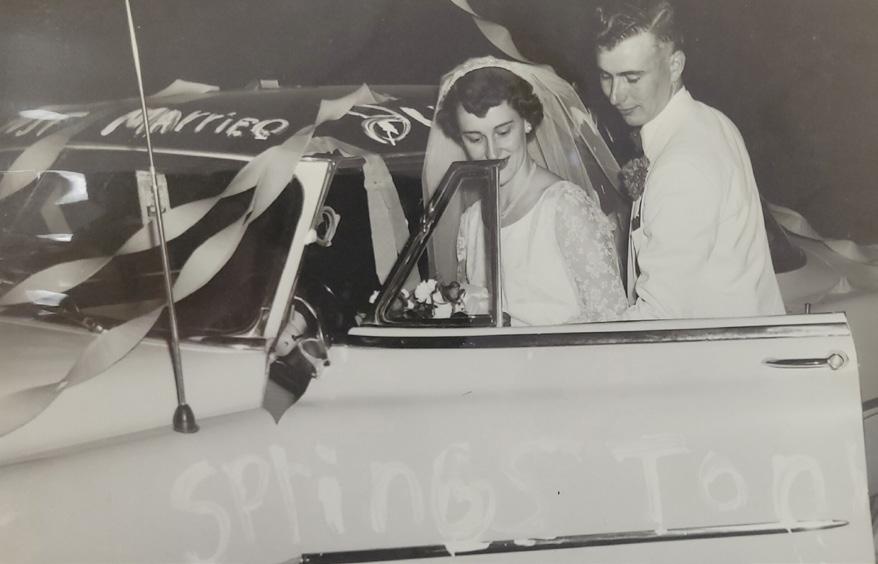
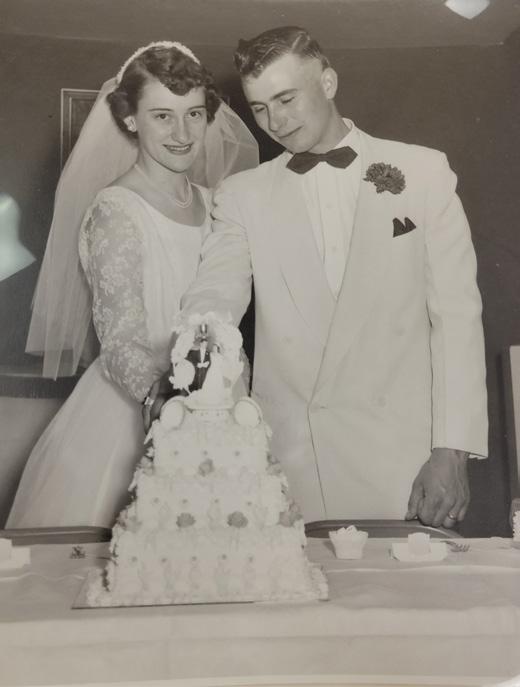


LaVerne, at 20, was part of the construction crew working on sewer upgrades in Spicer after graduating from Atwater High School in 1951.
"After I dated (Ramona) a couple times, I thought I'd stick with her," LaVerne joked. "She was hard to get."
LaVerne's proposal was a surprise, but not unexpected.
Ramona visited with a friend the afternoon that LaVerne went ring shopping, but later on the way home, she spotted him tucking an item away in the glove compartment. He covered by saying it was medicine for his cold.
After dinner with LaVerne's parents, he drove Ramona to Litchfield to catch the bus back to Minneapolis, where she was working at a bank. The bus, fortuitously enough, was an hour late, just enough time for LaVerne to drive them down to Lake Ripley and ask her to marry him.
Ramona said yes.
"I was excited that she thought I was a good idea," LaVerne recalled.
The wedding took place just four months later, on Saturday, April 16, 1955, in the late evening. The couple spent the morning
running pre-wedding errands, picking up all the flowers, the wedding cake, and the rings. Ramona spent her afternoon decorating the church; LaVerne didn't recall how he spent his afternoon.
LaVerne, who had joined the Marines in the meantime, returned home to Minnesota on leave for the ceremony. Ramona's written accounting of the big day noted that LaVerne was late for his own wedding photos.
"We intended to have our pictures taken before the wedding," Ramona wrote, "but LaVerne didn't get down to the church in time."
After staying one night at a motel in St. Cloud and a second night in Paynesville visiting friends, the couple spent Monday night dancing at the Spicer dance hall where they had first met.
By Tuesday afternoon, the couple began the four-day drive to where LaVerne was stationed at Cherry Point Marine Corps station near Morehead City, North Carolina.
The Latterells lived across the hall from close friends Roger and Shirley Anderson, with whom they still are friends today.
Both couples welcomed their first children just one month apart while stationed at Cherry Point.

CONTINUED FROM 3
After two years in North Carolina, LaVerne bid the Marine Corps goodbye and moved his young family back to Spicer, Minnesota, where he worked in road construction with Hanson Construction out of Willmar, building roads for Kandiyohi, Meeker, and Renville counties.
The Latterells welcomed their next four children in rural Kandiyohi County, working side-by-side on the farm with LaVerne's father, Walter. From 1959 to 1977, the Latterells operated a 50- to 60-head dairy, and then a farm, northeast of Kandiyohi. By the time he retired, LaVerne had operated Latterell Repair Shop, and later Latterell Trucking, and was a part-owner of both the Atwater Grain Elevator and Atwater Equipment Company.
"I remember the first time I saw her at the county fair, walking behind me, coming out of the grandstand. She was with — I don't remember if it was two or three — a 'girl gang'. I just remember her face."
LaVerne Latterell

Ramona worked as a homemaker for the first part of their marriage, raising children and keeping the domestic sphere of the farm humming. LeAnn Larson, the Latterells' oldest child, described her parents' division of labor as "outsideinside," with LaVerne primarily working as the breadwinner and provider while Ramona kept everything on the inside of the house in shape.
LaVerne set his standards high when it came to making sure his family had everything they needed, from a roof over their head to a helping hand to emotional support and love.
"I think he took great pride in providing very well for us," Larson said. "Now, I never
got the impression that we were rich, by any stretch, but I knew we were not poor. I had it good."
"Dad always provided for Mom easily," Melissa Grimsgard, the Latterells' youngest child, agreed. "I don't remember Dad ever saying no to Mom for anything. I think they took great pride in providing for themselves and for us children. All of his life, he would see where we needed something and he



provided and took care of us, even in our adult lives."
The Latterells celebrated their 50th wedding anniversary at Ebenezer Lutheran Church in Kandiyohi with "a big to-do," including performances from both Larson and Grimsgard on piano and vocals, respectively. Family and friends from all over, including the Andersons from


Live music performances by local musicians weekly!
The Willmar Senior club invite you to come enjoy some classic tunes with them!
Put on your toe tappin’ shoes for an afternoon of music!
Refreshments

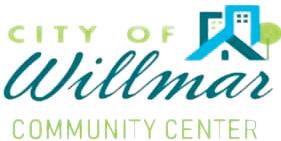
LaVerne's military days, made it up for the celebration.
The Andersons, originally from Stillwater and now living in Arizona, keep in touch with the Latterells, Grimsgard said. "They remained good friends all their lives, and they would come for things for that, occasionally."
The Latterells have been residents at GlenOaks since January, when Ramona required more care than she could find at Bethesda North Pointe, also in New London, where they had resided since 2021.
As Ramona's dementia set in, her daughters are thankful for their mother's positive and upbeat approach to life.
"She (always) had rose-colored glasses on. We've educated ourselves and know that some people with dementia become unruly," Grimsgard said, "and she's still so happy-go-lucky about everything. And I saw that our whole lives. Mom was positive about everything."
"Everything's wonderful. She never would say a bad word about somebody," Larson chimed in.
Grimsgard, who lives near Grove City, visits her parents at GlenOaks often. She witnessed what she called a special moment between
her parents about a month ago during one of those visits.
LaVerne had stopped by Ramona's room to say good night, and the couple sat together in the quiet for several moments, not really talking, according to Grimsgard. When it was time for LaVerne to return to his own room, he leaned forward and spoke louder to catch his wife's attention.
He had repeated her name a few times, making sure she had heard him and was listening, Grimsgard said, before saying just a simple four-word phrase: "Ramona, I love you."
"And Mom kinda looked at him like she always does — I don't know if it's her dementia is why she's gotten to be such this card; everything's kind of a joke — and so she looked at him and she says 'Well, if that isn't the kindest thing that you can tell someone,'" Grimsgard said. "She didn't say 'I love you' back — obviously she does, we've all seen it — but, even in her dementia, somehow that processing went through."
"That, to me, that's what 70 years gives you. Even though she's almost lost her mind, and they're apart, close, but apart," Grimsgard said, holding back tears. "He wanted to make sure he said 'I love you' before he left and that she understood that."
While the adjustment to first Bethesda and now GlenOaks has been more visibly difficult for LaVerne than for Ramona,


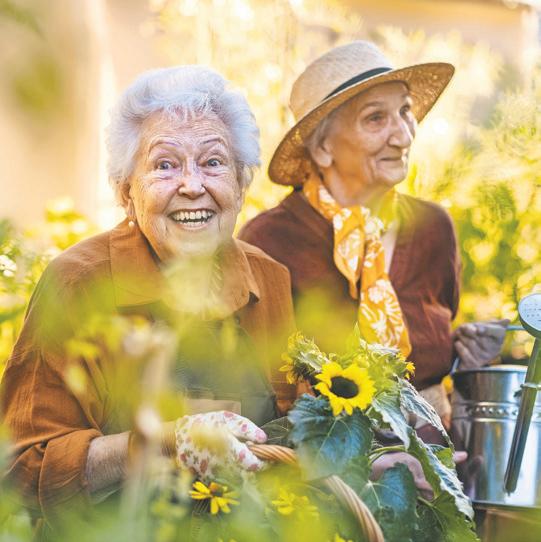
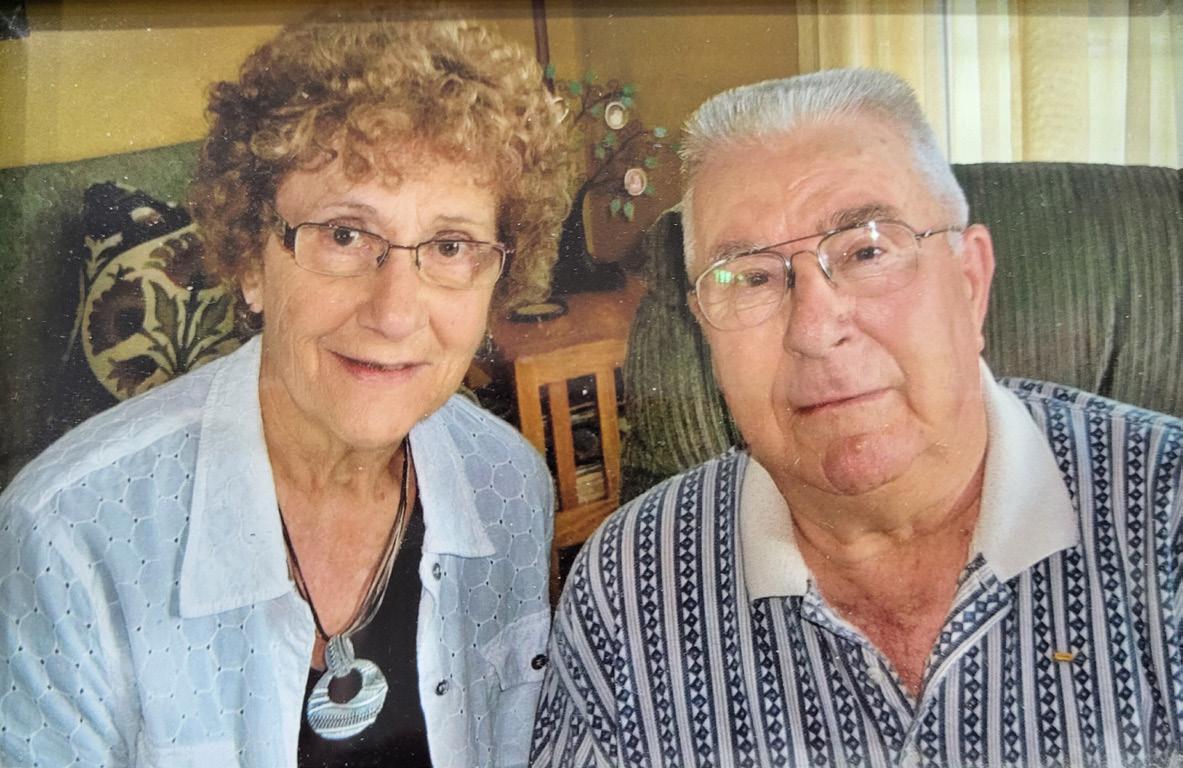
Larson credits him for the grace with which he has handled the changing care needs for Ramona, but also for himself.
"He's here, and this is his last home," Larson said. "This is a wonderful last place to be, too, if you want it to be. You're still living, and in their case, they're together, and that's joyful."
If you are so inclined, congratulatory cards may be sent to LaVerne and Ramona Latterell, c/o Glen Oaks Senior Campus, 100 GlenOaks Dr., New London, MN 56273.




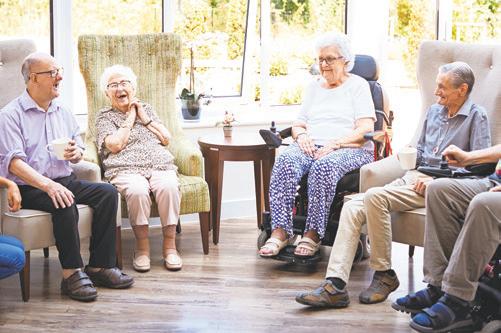



Scores of people view retirement as a time in their lives when they aren't beholden to schedules and can finally indulge in hobbies and interests they'd been dreaming about while sitting in meetings or commuting to the office.
Although retirement often is billed as a time to enjoy life, research suggests a different scenario plays out all too often. According to a recent study commissioned by The Oddfellows, one of the oldest friendly societies in the United Kingdom, 39% of retirees have experienced feelings such as loneliness, boredom and a reduced sense of identity and purpose shortly after the retirement glow wears off.
Staying active and engaged during retirement may take some creative effort, especially for those who were used to the regimented schedule of work. But the following are some ways to maintain your active engagement with the world after calling it a career.
• TAKE THAT TRIP. According to AARP, travel is one of the most popular things to do during retirement. Odds are there are places retirees have always wanted to visit, and the world is just waiting. Taking a tour or being part of a travel group can simplify travel planning by leaving the organizing to someone else. Travelers just enjoy the ride.
• GET MOVING PHYSICALLY. The National Council on Aging says regularly engaging in physical activity a person enjoys can help prevent bone loss, boost immunity, improve mood, and even prevent chronic illnesses. Team sport participation is a top choice for seniors looking to stay active because sports provide physical exercise and also an opportunity to socialize with friends or teammates.

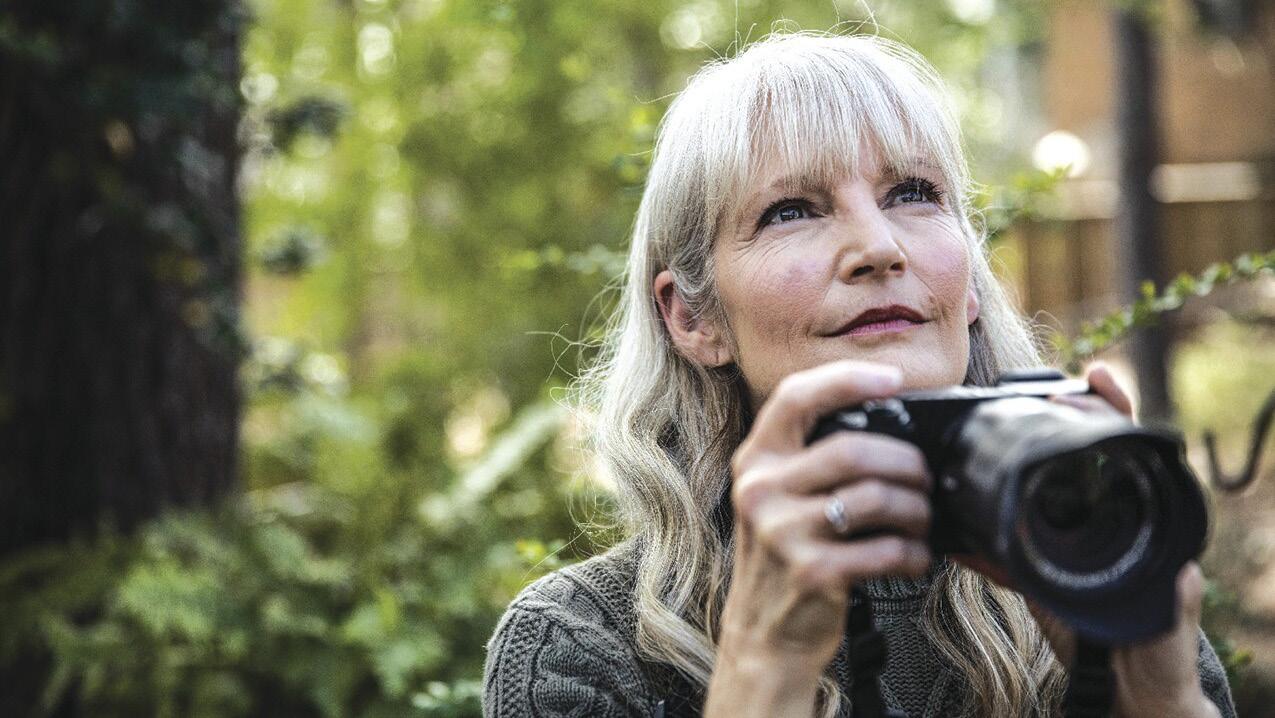
• MAINTAIN A CONSISTENT SCHEDULE. Some people thrive when they know what is coming next. If you need a routine in order to be happy, establish a consistent schedule that works. For example, people can wake up at the same time each morning and eat lunch during at the same time they did while working. Upon retiring, incorporate a daily plan for exercise if physical activity is not part of your traditional routine.
• TRY SOMETHING NEW. It is never too late to try a new activity, class, sport, or hobby. Challenging yourself can stimulate the mind and provide a pathway to new relationships. Individuals can even consider going back to college. According to Kiplinger, New Jersey residents age 65 and older can take regularly scheduled courses tuitionfree at the state's public colleges and universities, provided classroom space permits. There are similar programs in other states across the country.
• PICK UP A NEW LANGUAGE. Learning a new language is a beneficial tool for seniors who are looking to maintain cognitive abilities. The National Institutes of Health says bilingualism has been linked to higher cognitive reserve, delay in dementia onset and better performance in executive control.
There are many ways for seniors to keep their brains and bodies active in an effort to overcome boredom and improve overall well-being.


After what feels like a lifetime in the workforce, retirement is a welcome change for many individuals. Upon retiring, people often engage in hobbies they may have previously relegated to the back burner. Travel opportunities increase in retirement, and retirees may live more relaxed and less stressful lives.
Stress stemming from a looming retirement can creep up for those people who have not

taken the time to account for how their finances will change once they're no longer working. Without a consistent salary or other income coming in, retirees may have to change their habits and spending accordingly. This is particularly true for those who did not sock away enough in retirement savings.
The key to enjoying retirement is creating a retirement budget and sticking to it. Budgeting sets retirees up for more enjoyable golden years. The following are a few steps to creating a retirement budget.
• ADD UP ALL OF YOUR INCOME. As retirement nears, it can be helpful to sit down with a financial professional and calculate all of the income streams that ultimately will be replacing your paycheck. These include Social Security benefits, taxadvantaged retirement accounts like IRAs and 401(k)s, pensions, taxable investments, and even part-time earnings. This will give you a picture of projected income, which can be divided by the number of years you expect to spend in retirement.
• FIGURE OUT YOUR MANDATORY EXPENSES. Charles Schwab suggests considering the spending items that you will really need in retirement. These can include housing, utilities, clothing, medical insurance costs, and transportation. These needs may change through the years, so the budget can be reevaluated each year.
• CALCULATE ANY DISCRETIONARY EXPENSES. Spending that falls in the "want" territory may include travel, hobbies, gifting family members like grandchildren, and any big purchases like a boat or vacation timeshare.
• CONSIDER EXPENSES THAT MAY GO UP. While certain expenses may go down, like commuting costs, grocery bills, and expenses related to children, bills for utilities, recreation, property taxes, and more likely will increase through the years.
• COMPARE PROJECTED INCOME AGAINST PROJECTED EXPENSES AND SEE WHERE THE CHIPS FALL. If you find that income streams fall short, you may have to adjust investments before your retirement or you may have to take a part-time job after retirement. Sometimes spouses may not be able to retire at the same time if one person's salary will be needed to continue covering all expenses.
• DON'T OVERLOOK HEALTH CARE. Although you may be covered by Medicare and an insurance plan from a former employer, supplemental premiums and out-of-pocket costs may continue to rise during retirement. According to the 2024 Fidelity Retiree Health Care Cost Estimate, on average, a 65-year-old person may need $165,000 in after-tax savings to cover health care expenses.
Retirement comes with exciting prospects, and careful budgeting for the days when you aren't working can make for a more enjoyable post-work life.

















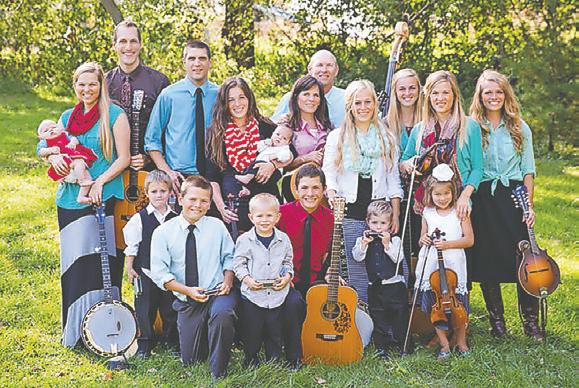





















life. The series featured Willmar in an episode in its first season. Hepola will be the featured speaker at the 2025 Life Connections event on April 25, 2025, at the Willmar Civic Center.
WBY KIT GRODE West Central Tribune
ILLMAR — Before he was a household name through his work at KARE 11 in the Twin Cities, Cory Hepola was a small-town kid.
Born and raised in Perham, Hepola knows first-hand the benefits of living in both rural and urban settings, and all of the stereotypes that come with each option.
Hepola knew from an early age that he wanted to be on TV as a news anchor, and he didn't waver from that path throughout high school and college. He credits small-town life for providing the opportunity to do it all, including being able to get involved in broadcast journalism as a high-schooler.
His first job took him to Fargo, North Dakota, and he has since worked in Helena, Montana; Elmira, New York; Rochester, New York; Austin, Texas; Houston, Texas; and then to KARE 11 in Minneapolis.




"I thought I would do that the rest of my life; that was a dream come true for me," Hepola said. "But it was around 2019 when I started to recognize that life changes. So I started to gain a different perspective."
Now married and a father of three, Hepola and his wife, Camille, began looking for the ideal place to raise their family in Minnesota.
"I've always loved where I grew up, but at 18, I wanted to leave — I wanted to get to the big city. But now as a dad and a husband, I started to look back at my hometown county through a different perspective," Hepola said. "I started to see all that that place had to offer and the values that were there, and how that not only shaped me but was important for me."
As part of that shift, Hepola realized that there were a lot of misconceptions about what life in rural communities entailed, and about the people who choose to live in rural areas.
"Nobody's really out there advocating for our rural towns," Hepola said.
With his rural upbringing and his background in broadcast journalism, Hepola had the skills to become that person, but it involved changing careers.
Just three years after that realization, Hepola made the change, leaving KARE 11 to join The Brookshire Company, an economic development company based in Minneapolis, with the goal of helping rural towns grow and expand.
"One thing they didn't have was a storytelling arm," Hepola said of The Brookshire Company, which is what prompted him to propose what would become the "My Town" documentary series.
"One of the things that we wanted to do with 'My Town' is that we wanted to take that preconceived notion — we all have them, these stereotypes or these things we've heard about another place or another community," and challenge it, Hepola said. "And that's
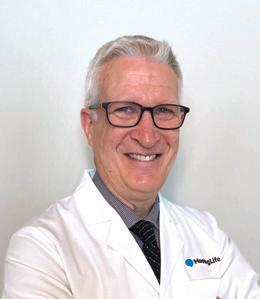





what 'My Town' is all about — go and explore, go and see what that community or that town is all about and discover it for yourself."
The first season of "My Town" highlighted seven rural communities, including Willmar, and was released in fall 2024.
"Growing up in Perham, for me, we're not too far, so I've known about Willmar, I've heard about Willmar my entire life," Hepola said. "Through 'My Town' (I) was able to have that opportunity to come and see just, honestly, a phenomenal experience in the community, and meeting so many people from different walks of life, too, and that's what I really enjoy."
The reception was overwhelmingly positive, to the point a second season was commissioned to feature eight additional communities across five states: Fairmont and St. Joseph in Minnesota; Watford City and Linton in North Dakota; Chamberlain and Watertown in South Dakota; Grand Island, Nebraska; and Rock Valley, Iowa.
Hepola also confirmed that a third season of "My Town" has been greenlit and is in the planning stages.
"We never say that small towns are better, or 'this is perfect and you should only think about this,'" Hepola said. "What we want to do is tell people who have never been exposed to small towns, or who have these
misconceptions or these myths, just to say 'Hey, this is out here, and it may be exactly what you're looking for.' "
Hepola's research is backing him up, as well. Statistics from the University of Minnesota show more people ages 30-49 either living in or moving to smaller communities in Minnesota.
"When you look at millennials or Gen Z'ers, they want that quality of life, that worklife balance," Hepola said. "And our rural towns, our small towns, they offer that better than anybody."
Hepola said misconceptions about the kinds of jobs available in rural communities have come up again and again, and emphasized that technological improvements have broadened the scope of jobs available in rural communities, "but also millennials and Gen Z'ers want to make a difference. They want to know not only that the company they work for is making a difference, but also 'I want to run for school board; I want to be on the church council; I want to be helping here; I want to coach my kid's team.'"
"We have to eliminate limited language," Hepola said, referring to phrases such as "back in the day," or "remember when we had this?" that tend to lock residents of communities both large and small into stagnation, rather than forward-thinking and innovation.
Through "My Town," Hepola has been able to reach groups of people that he has sorted into four broad categories: those who are rural by choice, who are proud of their rural communities and see no reason to leave; the "boomerangs," who were born and raised rural, moved away and have since returned to a rural community; the "ruralcurious," who have never lived rural but are exploring the possibility of doing so; and the urbanites," who have never lived rural and who have no intention of ever doing so.
The first three categories of people are a large majority of the people Hepola has encountered through his work, including when filming in Willmar.
"One of the things we really didn't know about, that we found out about through the story, was the story of MinnWest Technology Campus. Really a stunning story in terms of how community leaders and business leaders can make a positive impact on the community," Hepola said. "Here was this health care system within the state of Minnesota for 100 years — that Minnesota was changing the way health care was done — and this was going to impact this Willmar community."
The closure of the Willmar Regional Treatment Center in 2006 affected 70 employees in Willmar and 22 counties that relied on that facility for care services. NovaTech and Life Science Innovations partnered
to create MinnWest Technology Campus Management Company LLC, which officially owns, leases, and manages the 100-acre technology campus at the former mental health facility. The goal for the campus was to foster the growth and development of technology companies.
"We're talking hundreds of jobs lost, families looking at what might be next, and here you have the local business leaders coming together and going 'Hey, yes, we can. Let's build a technological hub and innovation center here in Willmar.' "
"You just don't hear those types of stories from rural often enough," Hepola said. "They sort of redesigned their future, and didn't wait for help. They just said 'We're gonna do it, and we're gonna do it ourselves,' and I thought that was really cool and inspirational for people on the outside to hear."
With another season of "My Town" scheduled to be released, and another in the queue, those people will have several new perspectives to consider when they consider what rural life might have to offer.
"If we are the ones championing and advocating for our own community, others will see it the same way we do," Hepola said. "That's really, at the core, what my message is all about."

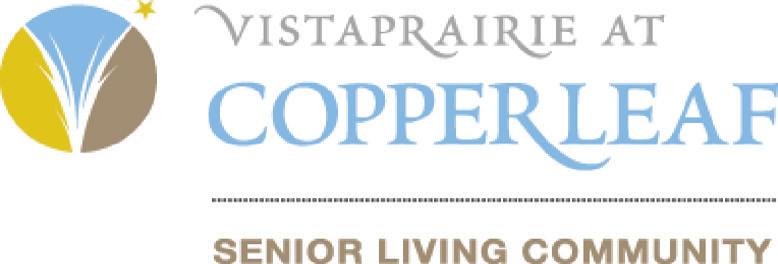


ILLMAR — The selection of an outstanding senior for the year is a favorite feature of Life Connections. This year will be the 14th year of the award. The award will be presented at 9:45 a.m. Friday, April 25.
The Outstanding Senior Award is given to an individual age 50 or older who has demonstrated outstanding leadership and commitment that benefits the community and its citizens.
Leadership qualities include creativity, volunteerism, responsibility, problem-
solving, respectfulness, cooperation, and organizational skills.
Nominees must live in Kandiyohi, Swift, Chippewa, Renville, Meeker, Pope or Stearns counties.
The winner will receive a $100 award, plus $100 donated to the charity of his or her choice. In addition, the person providing the nomination will receive $50. Nominations must include a description of the projects, activities, and/or volunteerism the person has been involved in; the end results and benefits of the individual’s efforts and contributions; and comments as to how this person’s efforts have helped to make their community a better place. For more
information, call 320-214-4317 or email csteffel@wctrib.com. Sponsor of the award is West Central Sanitation of Willmar.
Retired MACCRAY teacher Susan Honken, of Raymond, received the Outstanding Senior Award in 2024, in recognition of her dedication to teaching art to students, even using her own supplies and money to do so, according to the nomination letter.
The nomination essay said Honken also plays piano for both Bethany Reformed Church in Clara City and St. John's Lutheran in Raymond, and is extremely active with the Raymond Lions Club.
She has helped with a variety of activities from pork chop suppers and pancake feeds to parades, town decorations, and screening children's eyes as part of the Lion's KidsSight program.
She is a common face during Raymond Harvest Fest, helping with setup, chalk art, scavenger hunts, playing with the community band and taking part in the Lions activities.
Honken and her husband, Ronald, are also deeply involved with Campus Ministries at Ridgewater College, serving meals to 100 to 180 students several times each month. She also volunteers at Hope Pregnancy Center.

to the crowd after being presented with the Outstanding Senior Award by Patrick Goebel with West Central Sanitation, at left, during Life Connections at the Willmar Civic Center on Friday, April 26, 2024.






he Kingery Family and the Larry Olsen Polka Band will return to the Life Connections stage Friday, April 25, at the Willmar Civic Center.
THE KINGERY FAMILY, of the AtwaterGrove City area, will begin their set at 11:30 a.m.
Contributed / Eric Vest
Photography Inc.
The Kingery family, of the Atwater-Grove City area, will perform at 11 a.m. Friday, April 25, 2025, at the Willmar Civic Center.
The group began as a family of 10 — Mike, Chris, and their eight children — singing and ministering together through music. It has grown to include three sons-inlaw and seven grandchildren. They have enjoyed singing together for the past 19 years. They sing primarily gospel bluegrass music, while also incorporating fiddle, patriotic, Americana and a capella styles. Their combination of tight harmonies,

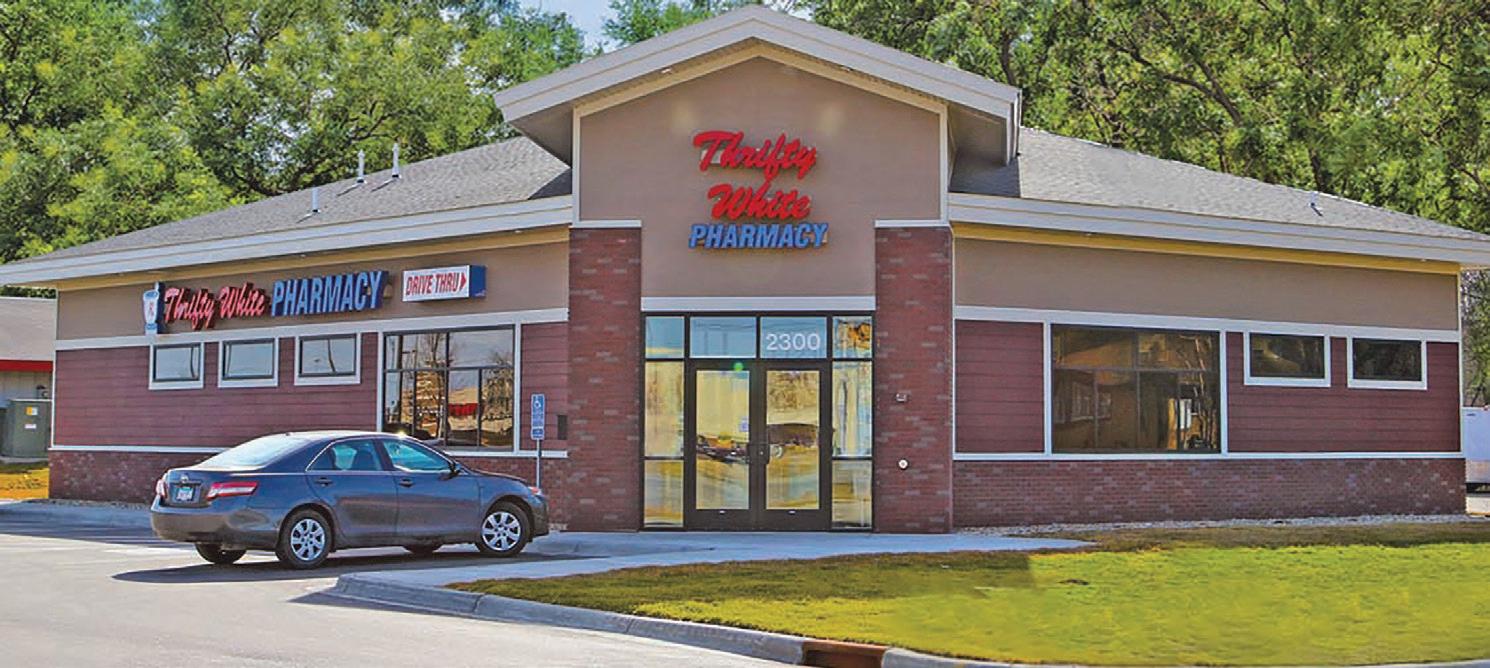
uplifting songs and family unity are sure to encourage all.
THE LARRY OLSEN POLKA BAND will entertain the afternoon crowd beginning at 2 p.m., following afternoon BINGO. Attendees are welcome to wear their dancing shoes and kick up their heels in front of the main stage.
The
in 1982, and got its start as the Larry Olsen Show, performing polka favorites around Minnesota and the
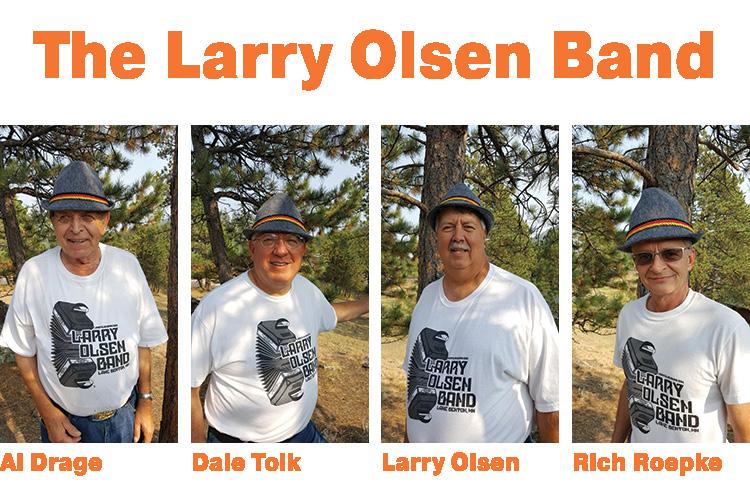

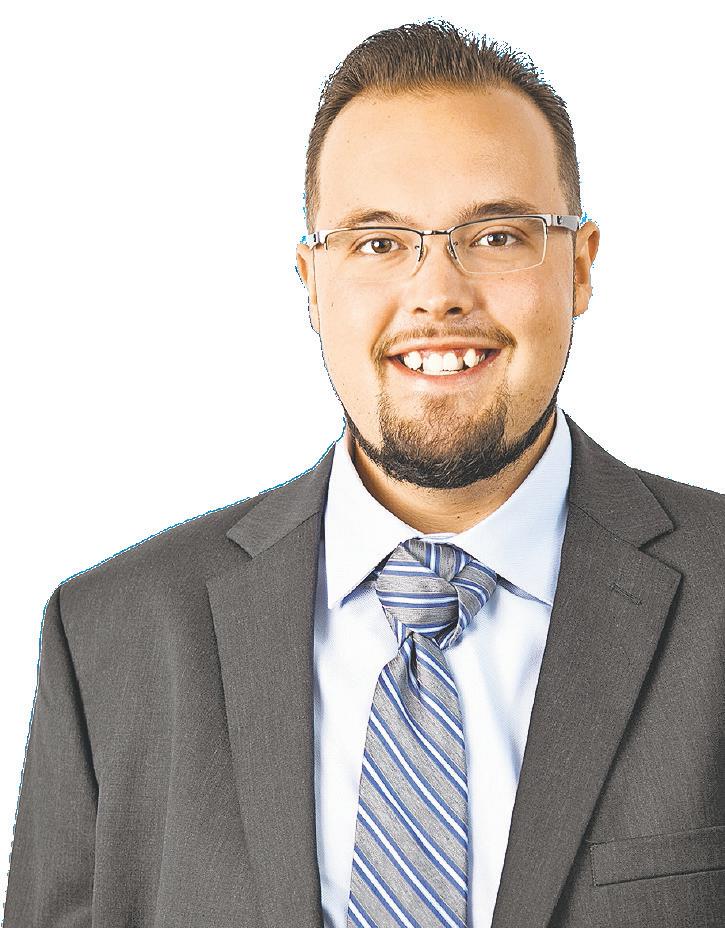
One of the primary lessons learned during the COVID-19 pandemic was how challenging social isolation can be. Social isolation often goes overlooked, but it's a key contributor to poor mental health.
Experts state that it is increasingly important for adults to maintain an active social life as they age. There are many benefits that come from staying engaged and socializing with others. The following is a look at seven ways socialization benefits seniors.
• Regular social interactions can help older adults avoid depression, anxiety and feelings of isolation, according to Integracare, a senior living company.
• Social engagement can help reduce the risk of cognitive decline and dementia because socializing helps to keep the mind sharp through new experiences.
• Socialization often revolves around an activity that gets seniors up and moving. While being sedentary is alright on occasion, consistently sitting or laying around can lead to high cholesterol, weight gain and high blood pressure. A 2019 study published in The Journals of Gerontology, Series B: Psychological Sciences and Social Sciences determined that older adults who interacted with
Come Visit Us at the
Willmar
We
•
•


people beyond their usual social circle of family and close friends were more likely to have higher levels of physical activity, greater positive moods and fewer negative feelings.
• Regular social interaction may compel seniors to embrace healthier eating habits. Social events expose seniors to different types of food, which can help them get the nutrients they need to live healthy.

• Regular socialization can help seniors feel they are needed and have a sense of purpose, which can boost self-esteem. Engaging with others often means contributing to a community, and that can be satisfying.
• Getting out and interacting with others can serve as an informal wellness check, potentially alerting family and friends to issues that may need attention.
The Fairview Cemetery is located Northwest of Willmar off of County Road 5 within the city limits. We are a public entity, NON-PROFIT status, and our revenue is obtained solely from plot sales and donations. PO Box 481, Willmar, MN 56201 320-220-2796
expressionsbydeborah@gmail.com
• Getting outside and interacting with others can open seniors up to new hobbies. Whether that is participating in a new sport or joining a club, there are mental and physical advantages to engaging socially.
Socialization is an important factor in seniors' overall wellness, and one that should be discussed along with diet, exercise and illness management.




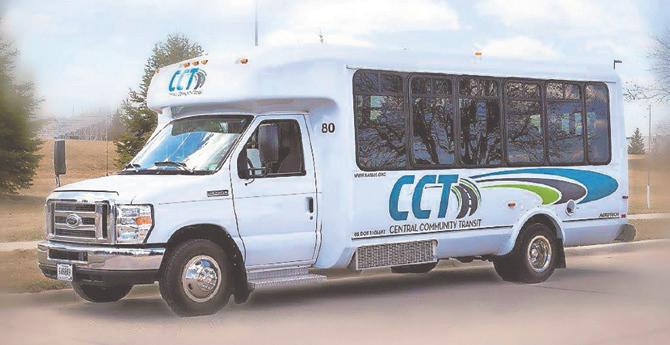



















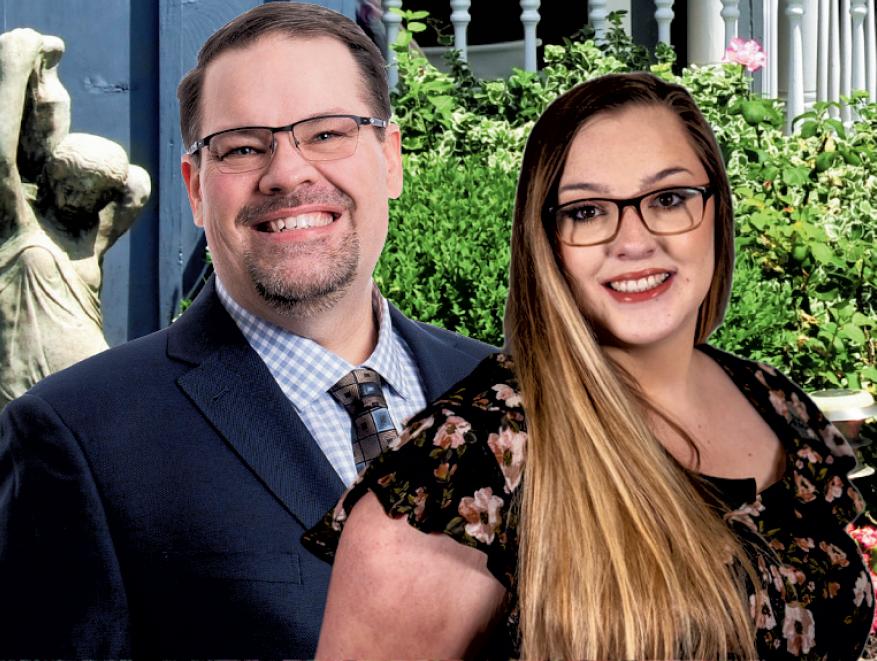






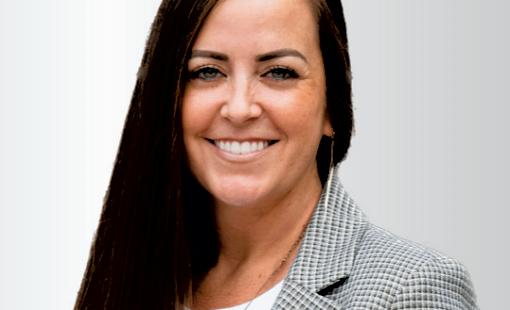


















































Whenlifefeelsuncertain,hospicecareprovidedbyVivieofferspersonalizedservicesandcompassionatecareforyouand yourlovedones,ensuringeveryneedismetwithkindnessanddignity.We’reheretohelpyouthroughthismeaningfuljourney.

ScantheQRcodeorvisitvivie.org/hospicetolearnifhospiceisrightforyouoralovedone.